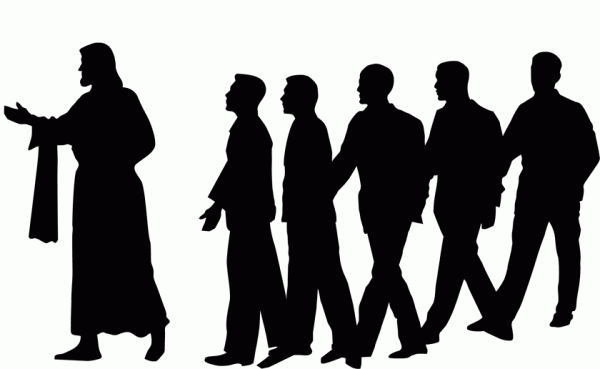The past few weeks we began talking about Jesus, the Master Communicator. When we encounter Jesus in the New Testament we tend to view him through the lens of him as our Savior and Lord. But how often do we view him through the lens of Jesus the Master Communicator? In light of this, what are some ways we can adopt this communication style in our own communication of the gospel in formal and non-formal ways?
Over these six weeks we are highlighting some of the communication styles of Jesus. The first week we talked about how Jesus used good stories. Last week we talked about Jesus using rich imagery. Today we will look at the third communication style.
3. Jesus asked good questions
Not only did Jesus tell good stories and use images, but he also asked good questions. By asking questions he was involving the audience and getting people to think so that they could discover the truth for themselves. There is power in self discovery as it allows one to experience a new level of understanding.
In Luke 9, Jesus asked his disciples a question. He asked, “Who do the crowds say that I am?” Surely he knew the answer. But the disciples responded with, “some say John the Baptist, others say Elijah, and still others that one of the prophets of long ago has come back to life.” At this point Jesus could have said, “No, I am the Christ, the Son of the Living God.” But he didn’t. What did he say?
“Who do YOU say that I am?”
At this point Peter made one of the greatest declarations in Scripture. Peter answered, “The Christ of God!” (NIV)
A good Bible study would be to print out the Gospel narratives and highlight all the places Jesus asked good questions. Here are just a few:
- To Peter for the second time: “Simon son of John, do you truly love me?” (John 21:16)
- To two blind men: “What do you want me to do for you?”(Matthew 20:32)
- To the woman with blood: “Who touched me?”(Luke 8:45)
- When telling a story: “Which of these three, do you think, was a neighbor to the man who feel into the hands of robbers?”(Luke 10:36)
- On making judgments: “Why do you look at the speck of sawdust in your brother’s eye and pay not attention to the plank in your own eye?”(Matt 7:3)
- To the blind man wanting to receive sight: “Do you believe that I am able to do this?”(Matt 9:28)
- When being challenged about the Sabbath: “If any of you as a sheep and it falls into a pit on the Sabbath, will you not take hold of it and lift it out?”(Matthew 12:11)
- To the disciples at the feeding of the 5000: “How many loaves do you have?”(Matt 15:34)
- To the teachers of the law as Jesus is ministering to the paralytic: “Why are you thinking such things in your heart?”(Mark 2:8)
- When teaching on divorce: “What did Moses command you?” (Mark 10:3)
- When talking about the cost of being a disciple: “Suppose a king is about to go to war against another king. Will he not first sit down and consider whether he is able with ten thousand men to oppose the one coming against him with twenty thousand?”(Luke 14:31)
- After healing the ten from leprosy: “Was no one found to return and give praise to God except this foreigner?”(Luke 17:18)
- To the invalid who had been at the pool for 38 years: “Do you want to be well?”(John 5:6)
- At the Last Supper: “For who is greater, the one who is at the table or the one who serves?”(Luke 22:27)
Just like the stories, these questions were chosen carefully. Jesus asked questions to teach people and to draw out the truth.
What are some other questions Jesus asked that are particularly poignant to you? Why do you think he asked these questions?

Leave a Reply